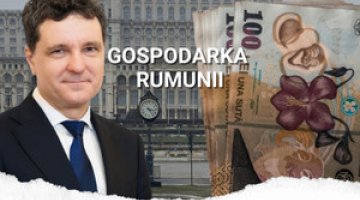Romania: victory for the anti-presidential camp in the election
The Social-Liberal Union (USL) was the clear winner of the parliamentary election in Romania, held on 9 December. The USL had been in power since May 2012 and is a centre-left coalition of the Social Democratic Party (PSD), the National Liberal Party (PNL) and the Conservative Party (PC). USL obtained nearly 60% of the vote.When translated into seats, this gives it a constitutional majority in parliament. After this landslide victory, USL may expect another crisis in relations between itself and the centre-right president Traian Basescu. In summer 2012 the USL made a failed attempt to impeach the president and their electoral campaign was centred around criticism of him. Even should President Basescu, faced with the centre-left’s overwhelming victory, decide to reappoint Prime Minister Victor Ponta as prime minister, another development in the fierce political conflict may be expected with regard to the amendments to the constitution which have been announced by USL. It should not be expected that the new government will make substantial changes to the economic policy and will withdraw from co-operation with the International Monetary Fund. However, a backward step from the fight against corruption is possible, which would affect Romania's position in the EU.
The electoral campaign and the results of the election
The Social-Liberal Union secured a landslide victory as it gained support comparable only with the results of the National Salvation Front in the first election after the Ceausescu regime collapsed, held in 1990. USL obtained 67% of the seats in parliament (see Appendix). The main source of this electoral success was society's discontent with the legacy of the centre-right, particularly the drastic budget cuts from 2010–2011 championed by Basescu. This was further reinforced by the specifics of Romania's political scene which is highly personalised and where the main division line is not political or ideological issues but the attitude to President Basescu. The anti-presidential rhetoric has enabled USL to go to the election as a coherent bloc although the Social Democratic Party (PSD) led by Prime Minister Victor Ponta and the National Liberal Party (PNL) led by the speaker of the Senate Crin Antonescu are at the opposite ends of the political spectrum. Pro-European Social Democrats are to a larger extent focusing on social demands, whereas National Liberals have revealed anti-European and nationalistic elements in their speeches. USL's excellent results at the polls were also linked to the promises made in the campaign to increase the minimum wage and to reduce taxes for the lowest earners.
The results of the election also revealed an entrenched crisis in the pro-presidential right wing which stayed in power from the end of 2008 to May 2012. After having lost power, the Democratic Liberal Party (PDL) along with three small parties established the Right Romania Alliance (ARD) which came in second in the election with 17% of the vote. ARD did not prove to be very reliable (PDL alone won 22% in the local election this summer). The economic programme of the right-wing coalition in its social dimension did not differ much from that of USL; it also lacked a clear and popular leader. A third political force which also appeared in parliament was the People's Party - Dan Diaconescu (PPDD). This is a rather unpredictable, populist party led by a media magnate using anti-establishment rhetoric. The party which represents the Hungarian minority – the Democratic Union of Hungarians in Romania (UDMR) – saw a decline in the support as it just slightly passed the 5% threshold. The poor results of UDMR are due to a low turnout among Romanian Hungarians as well as to the activity of the Hungarian People's Party of Transylvania (PPMT) which is critical of UDMR and strongly emphasises its autonomic aspirations. PPMT, however, did not obtain any seats in parliament.
Turnout reached nearly 42%, which has to be considered a good result when one bears in mind an exceptionally cold winter and the fact that in the previous election it was 39%. The new parliament will have 117 MPs more than before. This stems from the specificity of the Romanian voting regulations which automatically grants mandates to candidates who have garnered over 50% of the vote in their constituencies (only at further stages are the seats proportionally distributed). The voting system also gives special preferences to national minorities which thus have 18 seats in parliament guaranteed, apart from the representation of Hungarians, and traditionally support the ruling majority.
What will President Basescu do?
The Romanian constitution grants wide competences to the president in the area of foreign and security policies as well as the key role in establishing the government. The president puts forward his candidate for prime minister to parliament after consultations have been held with all political parties in a situation where none of them has obtained 50% support in the vote (the USL is a coalition of parties). President Basescu hinted before elections that he would not reappoint Victor Ponta as prime minister. This was linked not only to personal animosity between the two politicians but was also supposed to exacerbate tensions within the USL coalition. Following the landslide victory of the USL the president will, however, have limited room for manoeuvre and will probably reappoint Victor Ponta as prime minister. It would be difficult for the president to find an alternative candidate in the triumphant USL. Basescu must also factor in the possibility of another (after the failed attempt at impeachment in summer this year) attempt by parliament to suspend him from the exercising of his duties as head of state.
Outlook
Immediately following the election, Prime Minister Victor Ponta announced that he would seek to form the government together with the party representing the Hungarian minority, which would improve his image abroad (this idea however seems controversial to the National Liberals). Nor can it be ruled out that USL will succeed in attracting a section of MPs from other parties (in the previous parliament one in every four MPs defected). Prime Minister Ponta will have a clear although quite internally varied majority in parliament. Due to this he will be able to push though far-reaching changes in the political system. During his campaign Ponta announced that the constitution would be soon amended, the scope of these amendments was however only summarily outlined. The details presented were related to curbing presidential competences (taking away from him the prerogative to appoint the prime minister) and the competences of the Constitutional Court (parliament could reject the Court's verdicts by a majority of two thirds of the seats). The latter proposal in particular would trigger an excessive concentration of power and would provoke an intensification of criticism from the US and the EU. They have already expressed their concern with regard to the level of respect shown to the standards of the rule of law, the division of powers and the independence of the courts during the crisis over the failed impeachment of Basescu in August this year.
The announced amendments to the constitution do not present a clear project of the reconstruction of the political system. Nor does the coalition agreement between the parties of USL foster deep changes. Under this agreement the leader of PSD will be the candidate for prime minister and the head of PNL will be the future president (Basescu's term ends towards the end of 2014). The amendments to the constitution will be used by USL to fight the current president and will probably serve as a pretext to try to impeach him once again as each amendment to the constitution requires approval in a national referendum. Such a referendum could be combined with a vote on the impeachment.
The fight with the president will remain a priority for the coalition and the consolidation of USL's position could hamper the progress in combating corruption and clientelism. There were candidates implicated in corruption scandals on the electoral lists of all the parties and parliament had already made attempts to limit both competence and funds for anticorruption institutions.
Appendix
The results of the parliamentary elections held in Romania in 2012.
|
|
Number of seats |
|
|
|
|
Chamber of Deputies |
Senate |
In total |
|
USL |
273 |
122 |
395 |
|
ARD |
56 |
24 |
80 |
|
PPDD |
47 |
21 |
68 |
|
UDMR |
18 |
9 |
27 |
|
Group of ethnic minorities |
18 |
|
18 |
|
|
|
|
|
|
In total |
|
|
588 |





